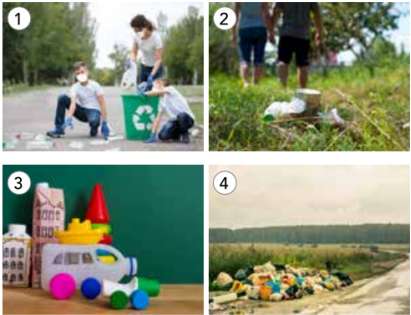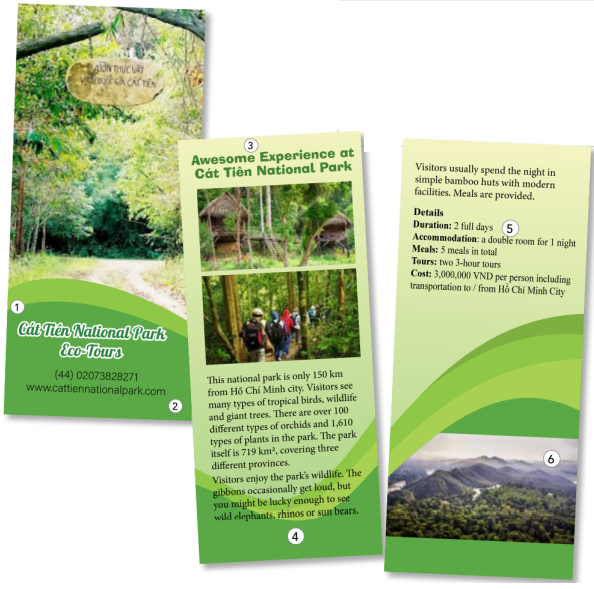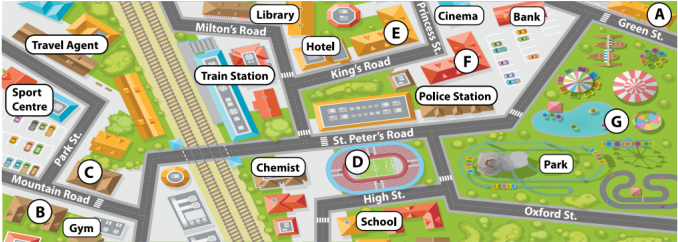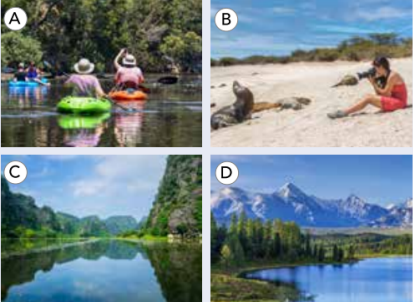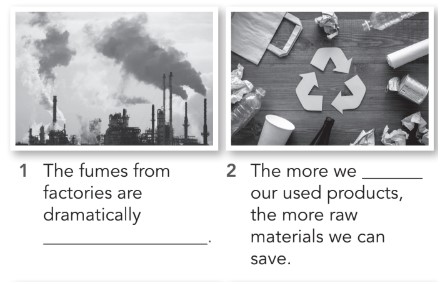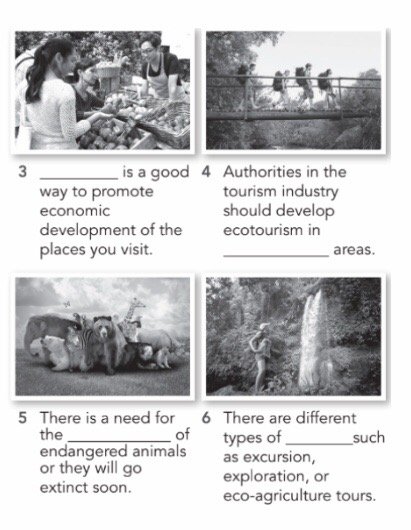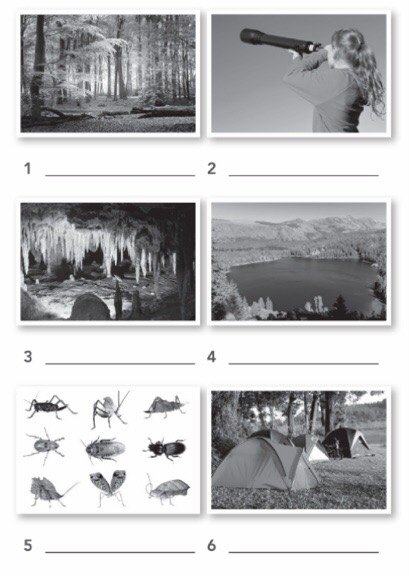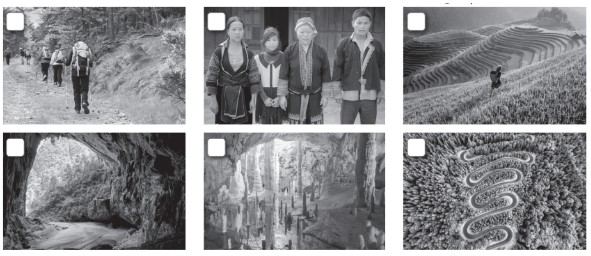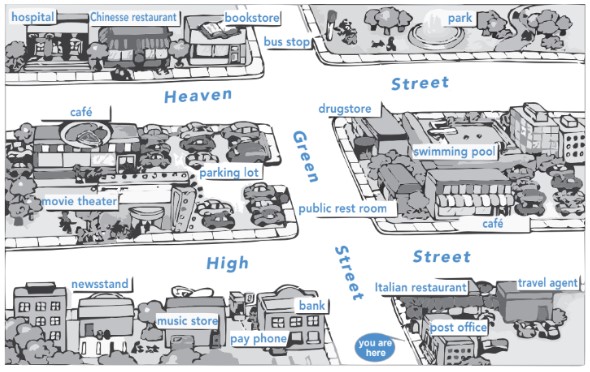Giải SGK, SBT Unit 8. Ecotourism English Discovery
Giải SGK, SBT Unit 8 English Discovery
1. Put the activities in the appropriate column.
(Đặt các hoạt động vào cột thích hợp.)
|
1. uy local foods |
7. litter |
|
2. go cycling |
8. plant trees |
|
3. drive a car |
9. put rubbish in the bins |
|
4. eat a lot of meat |
10. reuse used items |
|
5. limit energy use |
11. take rubbish with you |
|
6. reduce waste |
12. use plastic bags |
|
Good for the environment |
Bad for the environment |
|
|
|
4 Complete the text with the phrases below. There is one extra phrase.
(Hoàn thành văn bản với các cụm từ bên dưới. Có một cụm từ bị thừa.)
|
harm the environment local communities offering medical care put rubbish in the bin conserve the environment |
We must (1) ____for our children and grandchildren. For too many years, people would (2)____ without realising it is bad for our Earth. (3) ____ often don't have enough water or land to grow crops because the environment has been destroyed. We need to help out if we want to conserve different types of plants and animals for future generations. We can all limit waste, use plastic bags and (4) ____.
3. Read the GRAMMAR FOCUS. Complete the examples using the correct verb form.
(Đọc NGỮ PHÁP TRỌNG TÂM. Hoàn thành các ví dụ bằng cách sử dụng dạng động từ đúng.)
|
GRAMMAR FOCUS Indirect Speech In indirect speech, verb forms and pronouns change depending on the context. |
|
|
Direct Speech |
Indirect Speech |
|
Present Simple 'I save bottles,' she said. |
Past Simple She said she (1) ____ bottles. |
|
Present Continuous ‘He is saving bottles,’ she said |
Past continuous She said he (2) ____ bottles.
|
|
Don't use back shifting when: - giving suggestions or commands |
|
|
‘Take your rubbish with you!’, she said |
She told us to take our rubbish with us. |
|
The information is a general truth at the time it was said as well as now. |
|
|
‘The Earth is round’, my teacher said |
My teacher said the Earth is round. (“The Earth is round” is a general truth.) |
2 Read the GRAMMAR FOCUS. Complete the examples. Use the correct verb form.
(Đọc NGỮ PHÁP TRỌNG TÂM. Hoàn thành các ví dụ. Sử dụng dạng động từ chính xác.)
|
GRAMMAR FOCUS In indirect questions, the subject comes before the verb. |
|
|
Direct questions |
Indirect questions |
|
Wh- questions ‘Where is the local shop?’, he asked a local farmer. Mai asked, ‘Why is he tired?’ |
He asked a local farmer where the local shop was. Mai asked why (1) ____ tired. |
|
Yes/No questions ‘(2)_____ a tour’, he asked me. |
He asked me if/whether I wanted a tour. |
|
Words for time and place change indirect speech |
|
|
Direct speech |
Indirect speech |
|
today, tonight |
that day, that night |
|
tomorrow, next day |
the next day, the following day |
|
next (week, month,etc.,) |
the next/the following (week, month,etc.,) |
|
now |
then |
|
here this (place) |
there that (place) |
3. Complete the sentences. Choose the verbs from the LANGUAGE FOCUS.
(Hoàn thành các câu. Chọn các động từ TỪ VỰNG TRỌNG TÂM.)
|
LANGUAGE FOCUS Prepositions after verb (TỪ VỰNG TRỌNG TÂM Giới từ sau động từ) |
||
|
join in (tham gia vào) |
know about (biết về) |
learn about (tìm hiểu về) |
|
trek through (đi qua) |
protect from (bảo vệ khỏi) |
die of (chết bởi) |
|
provide with (cung cấp) |
approve from (phê duyệt từ) |
|
1. You will ____ the sea when you go on an ecotour to Palawan.
2. Please ____ our ecotour to help the local community.
3. She doesn't ____ protecting nature.
4. We have to ____ the mangrove to reach the sea.
5. The receptionist will ____ you ____ information about exotic places and trekking tours in this area.
6. Many animals ____ water pollution. We need to ____ them ____ extinction.


